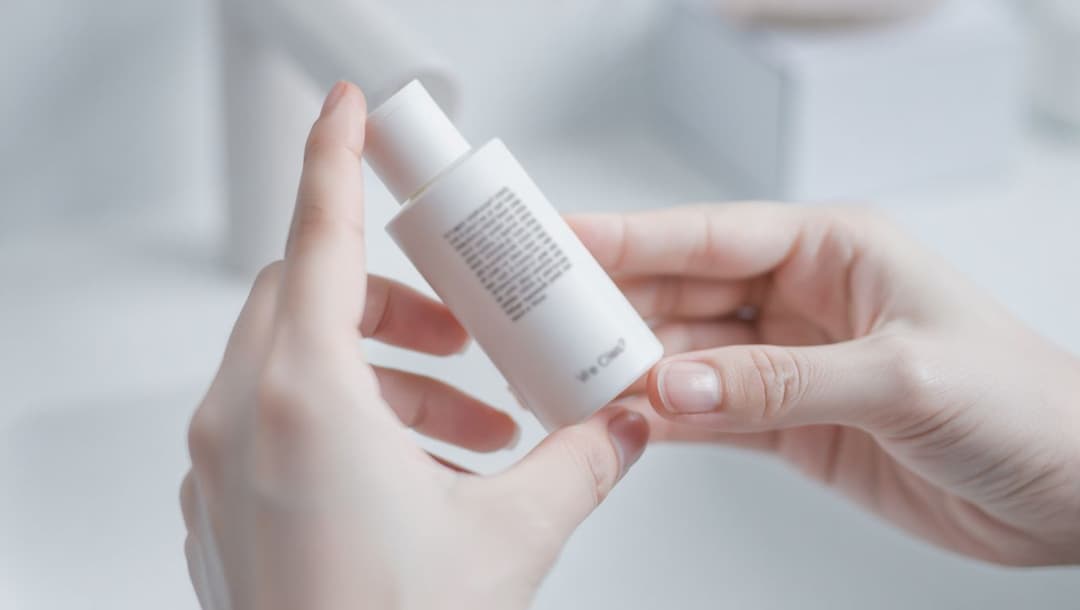Continuing our initial discussion on acne, this article further examines evidence-based approaches to enhance patient outcomes and treatment protocols.
When treating a patient with acne, a one-size-fits-all approach isn’t effective because each individual’s experience and needs are unique. Patients value healthcare providers who see them as more than just cases; they appreciate when their personal life, values, and experiences are acknowledged. By recognizing these individual differences, healthcare providers can deliver more effective, personalized care that truly aligns with each patient's unique journey and goals.
Key Points for Better Patient Care
- See the Whole Person: Understand not just the condition, but how it affects the person's life and how their life affects the condition.
- Remove Barriers to Care: Make sure everyone can fully participate in their care, considering any disabilities or language needs.
- Consider Life Circumstances: A person’s family, job, and past healthcare experiences can impact their health and willingness to engage in care.
- Listen to Preferences and Concerns: People’s beliefs and worries influence how they approach treatment. Respect and support them to be active in their care.
- Avoid Stereotypes: Don’t make assumptions based on appearance or personal traits.
- Make Services Fair and Accessible: Ensure that everyone has equal access to care, regardless of background.
- Offer Extra Support When Needed: If appropriate, discuss and provide guidance on emotional, social, and financial support, checking in regularly to see if needs change.
Information and support for people with acne vulgaris
For people with acne, it’s essential to provide clear, tailored information that addresses their unique needs and concerns. Key topics to cover include:
- Understanding Acne Causes: Explain the possible factors behind their acne, such as hormonal changes, genetics, or lifestyle factors.
- Treatment Options: Outline available treatments, including over-the-counter options if suitable, so they know their choices.
- Benefits and Drawbacks of Treatments: Describe what each treatment can offer, as well as any potential side effects or limitations, to help them make informed decisions.
- Impact of Acne: Discuss how acne can affect not only their skin but also their self-esteem and overall well-being, helping them feel understood and supported.
- Importance of Treatment Adherence: Emphasize sticking with the treatment plan, as consistent use improves results (refer to the NICE guideline on medicines adherence for more information).
- Handling Relapses: Prepare them for possible relapses during or after treatment by explaining when to seek advice and what alternative treatments may be available if acne returns.
This approach ensures that patients with acne receive well-rounded, supportive guidance tailored to their situation, empowering them to manage their condition effectively.
General skin care
- Cleanse Gently: Use a non-alkaline (skin pH-neutral or slightly acidic) synthetic detergent (syndet) cleanser twice daily on acne-prone areas. This helps cleanse the skin without disrupting its natural balance or causing irritation.
- Opt for Non-Comedogenic Products: Choose moisturizers, sunscreens, and other skincare products that are non-comedogenic and oil-free to avoid clogging pores and worsening acne.
- Use Suitable Make-Up: If you wear makeup, select oil-free, non-comedogenic options and be sure to remove it thoroughly at the end of the day to keep pores clear.
- Avoid Picking or Scratching: Try to resist the urge to pick or scratch acne spots, as this can increase the risk of scarring and worsen inflammation.
These practices support clearer skin and reduce the risk of irritation and scarring, promoting healthier skin in those with acne.
Dietary Advice for Managing Acne
- Understand Diet's Role: It's important to know that there isn’t enough evidence to support specific diets for treating acne. Focus on what works best for your overall health.
- Follow a Balanced Diet: I recommend maintaining a balanced diet, as it can positively influence your overall well-being.
Treatment options for acne
Acne management encompasses a variety of topical and oral medications, which can be utilized individually or in combination to achieve optimal results. The selection of an appropriate treatment regimen should be personalized, taking into account several critical factors, including the severity of the acne, the patient’s overall health, mental well-being, and any concurrent medications.
Topical Treatments
- Benzoyl Peroxide: An antibacterial agent that helps reduce acne-causing bacteria and has anti-inflammatory properties.
- Salicylic Acid: A beta hydroxy acid (BHA) that helps unclog pores and reduce inflammation.
- Retinoids: Topical retinoids (e.g., tretinoin, adapalene) help increase cell turnover and prevent clogged pores. They are effective for mild to moderate acne and can also improve skin texture.
- Antibiotics: Topical antibiotics (e.g., clindamycin, erythromycin) can reduce inflammation and bacterial growth on the skin.
- Azelaic Acid: An anti-inflammatory agent that can help reduce redness and treat both acne and post-inflammatory hyperpigmentation.
Oral Medications
- Antibiotics: Oral antibiotics (e.g., doxycycline, minocycline) may be prescribed for moderate to severe inflammatory acne to reduce bacteria and inflammation. 2. Hormonal Treatments: For women, hormonal treatments like oral contraceptives can help regulate hormones that trigger acne.
- Isotretinoin: A powerful oral retinoid typically reserved for severe, treatment-resistant acne. It significantly reduces oil production and prevents clogged pores but comes with potential side effects and requires close monitoring.
Treatment Considerations for Acne Management
Recognizing that the risk of scarring increases with both the severity and duration of acne is crucial in developing an effective treatment plan. Here are several important considerations for managing acne:
- Minimize Skin Irritation: To reduce the risk of skin irritation associated with topical treatments like benzoyl peroxide or retinoids, it is advisable to start with alternate-day applications or short-contact methods, such as washing off after one hour. If the skin tolerates this approach, you may gradually transition to standard application protocols.
- Addressing Childbearing Potential: When discussing treatment options with individuals who may become pregnant, it is essential to inform them that topical retinoids and oral tetracyclines are contraindicated during pregnancy and when planning for pregnancy. They should be advised to use effective contraception or to consider alternative treatments.
- Hormonal Contraception Considerations: If a patient wishes to use hormonal contraception while undergoing acne treatment, consider prescribing the combined oral contraceptive pill rather than the progestogen-only pill, especially if oral isotretinoin is anticipated in their treatment plan.
- Preparing for Oral Isotretinoin: If clinical judgment suggests that a patient may require oral isotretinoin in the future, it is critical to note that this medication should not be initiated until adequate courses of standard therapy, including systemic antibiotics and topical treatments, have been completed. This aligns with the Medicines and Healthcare Products Regulatory Agency (MHRA) guidance regarding new safety measures for isotretinoin. This consideration should inform the selection of initial treatment options.
- Avoid Certain Monotherapies: It is important to refrain from using the following treatment approaches for acne:
- Monotherapy with a topical antibiotic
- Monotherapy with an oral antibiotic
- A combination of a topical antibiotic and an oral antibiotic
By carefully tailoring treatment plans based on these considerations, healthcare providers can help mitigate the risk of scarring while effectively managing acne, leading to better patient outcomes.
Acne Severity Grading
Acne severity is typically graded into four levels—mild, moderate, severe, and very severe—based on the type, number, and distribution of lesions. Here’s a breakdown of the most commonly used classification systems:
1. Grade I: Mild Acne
- Description: Primarily non-inflammatory lesions, with few, if any, inflammatory lesions.
- Characteristics:
- Mostly whiteheads (closed comedones) and blackheads (open comedones).
- Minimal to no inflammation.
- Limited to small areas of the face.
- Examples: Adolescent or early-stage acne, often localized.
2. Grade II: Moderate Acne
- Description: A combination of comedonal and inflammatory acne.
- Characteristics:
- Presence of comedones as well as papules and pustules (red, inflamed lesions with pus).
- Some inflammation is visible, with lesions often spread across a larger area of the face.
- May extend to the neck, chest, or back.
- Examples: Teenage acne that includes some inflammation but does not yet involve deep lesions.
3. Grade III: Severe Acne
- Description: Pronounced inflammatory acne with nodules.
- Characteristics:
- A significant increase in the number of papules, pustules, and inflamed lesions.
- Nodules (large, painful, deep-seated lesions) are present.
- Noticeable inflammation and potential for scarring.
- Involves the face and often the trunk (chest and back).
- Examples: Persistent and deep lesions that are not easily treatable with over-the-counter products.
4. Grade IV: Very Severe Acne (Nodulocystic or Conglobata)
- Description: Highly inflammatory acne with widespread nodules and cysts.
- Characteristics:
- Deep, painful cysts and nodules that may connect to form sinus tracts under the skin.
- Significant inflammation and high risk of scarring.
- Often spread across large areas of the body, including face, neck, chest, and back.
- May also involve abscesses and interconnected lesions.
- Examples: Often resistant to standard treatments and may require systemic therapy, including oral isotretinoin.
These grading systems help guide treatment options by assessing acne severity, which is essential for selecting appropriate interventions and managing patient expectations effectively.
Below, these grades are presented both in a tabulated format and with accompanying visuals to enhance clarity and facilitate quick reference.
Table 1. Investigator Global Assessment Scale (IGA) by US Food and Drug Administration (FDA). (3)
| Grade | Clinical Description |
|---|---|
| 0 | Clear skin with no inflammatory or noninflammatory lesions |
| 1 | Almost clear; rare noninflammatory lesions with more than one small inflammatory lesion |
| 2 | Mild severity; greater than grade 1; some noninflammatory lesions with no more than a few inflammatory lesions (papules/pustules only, no nodular lesions) |
| 3 | Moderate severity; greater than grade 2; up to many noninflammatory lesions and may have some inflammatory lesions, but no more than one small nodular lesion |
| 4 | Severe; greater than grade 3; up to many noninflammatory and inflammatory lesions, but no more than a few nodular lesions |
Specific treatment options are discussed in Acne Management article.

















